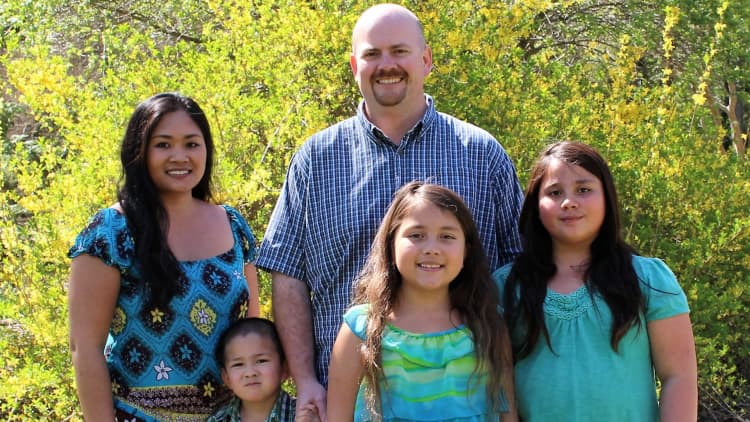The typical American leaves the workforce at age 63, and some personal finance experts are saying that "70 is the new retirement age."
But as everyday people have shown us, retiring early is more than possible.
What would it take for you to retire by 50?
Personal finance site NerdWallet created a chart to help answer that question. It shows the percentage of your pre-tax income you'd need to set aside to have $1 million — the oft-cited amount needed to retire comfortably — saved by the time you're 50.
Of course, you may need more or less than $1 million depending on how you want your lifestyle to look like in your golden years. For more of a personalized savings target, check out NerdWallet's retirement calculator.
The chart below assumes you're starting at age 22 with zero dollars invested. It also assumes a 6 percent average annual investment return and various annual salaries.
Keep in mind that the chart does not factor in inflation or salary increases.
Here's how much you would have to set aside to have $1 million by age 50 if you earn:
$40,000: 34.6 percent of your income
$60,000: 23 percent of your income
$80,000: 17.3 percent of your income
$100,000: 13.8 percent of your income
$120,000: 11.5 percent of your income
"There's no doubt that trying to save $1 million in less than 30 years on a $40,000 income is going to be a real challenge," NerdWallet's investing and retirement specialist Andrea Coombes tells CNBC Make It. "Still, the amount you can save is directly tied to how much you spend, so if you can reduce spending enough to save 35 percent of your income, more power to you."
Most early retirees find ways to bank at least half their income, and you can too. For inspiration, check out these articles:
- 36-year-old retiree shares his No. 1 money saving tip
- Early retirees agree on the crucial first step to achieve financial freedom
- Couple that saved $1 million to retire in their 30s share their No. 1 money saving tip
Like this story? Like CNBC Make It on Facebook!
Don't miss: How one couple saved more than $1 million in 10 years to retire in their 30s



